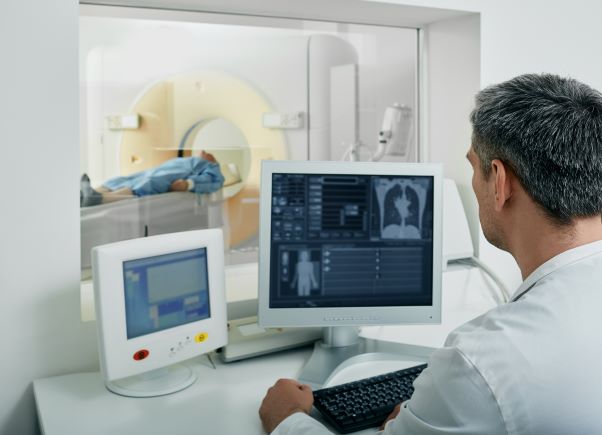
A new study from the Daffodil Centre using 45 and Up Study data has found that a targeted lung cancer screening program could not only save lives but could also be cost-effective in most cases, using a commonly accepted measure of the value of health outcomes.
The study, published in the British Journal of Cancer, applied the findings of two major international trials of lung cancer screening – the Dutch-Belgian NELSON trial and the U.S. National Lung Screening Trial (NLST) – to an Australian context to estimate cost-effectiveness.
Both trials involved targeted lung cancer screening using low-dose computed tomography (a low-dose CT scan) but had slightly different protocols for screening and detection. The NELSON trial reduced lung cancer deaths by 24% while the NLST trial reduced deaths by 20%.
Researchers found that lung screening could be cost effective in 60% of cases, when using the parameters of the NELSON trial only and assuming an acceptable cost of $50,000 for each quality-adjusted life year (QALY) gained over a lifetime. The results for the NLST trial were less favourable, largely due to the lower mortality benefit in that trial.
The 45 and Up Study was important to this new research in several ways. Researchers used the Study cohort of more than 250,000 people to determine the proportion of Australians eligible for screening. The 45 and Up Study’s linkages to various health databases also provided the researchers with comprehensive health-system costs associated with lung cancer, which were first published in 2020.
Associate Professor Marianne Weber, leader of the Daffodil Centre’s Lung Cancer stream, said the study showed great promise for targeted lung cancer screening in Australia.
“These results, which show targeted lung cancer screening using low-dose computed tomography could be more cost-effective than previous estimates indicated, strengthen the economic case for a targeted lung cancer screening program.”
These findings follow last month’s recommendation of a targeted national lung cancer screening program by the independent Medical Services Advisory Committee to the federal government.
Lung cancer is the leading cause of cancer-related death, both in Australia and worldwide. In 2022, it’s estimated that more than 8600 Australians will die from lung cancer, and 14500 new cases will be diagnosed. Lung cancer has a five-year survival of 22%, but that rate more than doubles when the cancer is detected in its early stages.
The Daffodil Centre is a joint venture between Cancer Council NSW and the University of Sydney.





